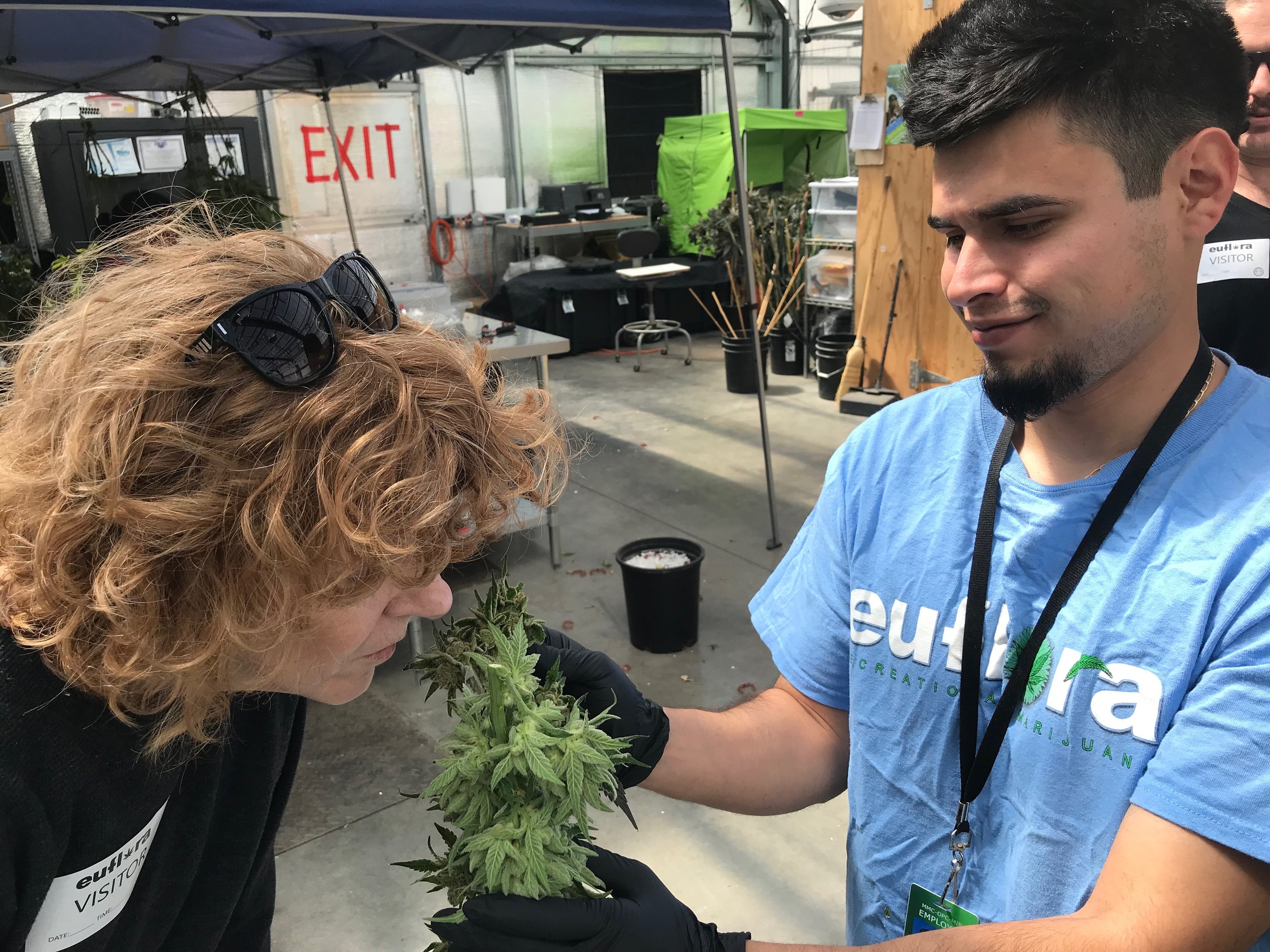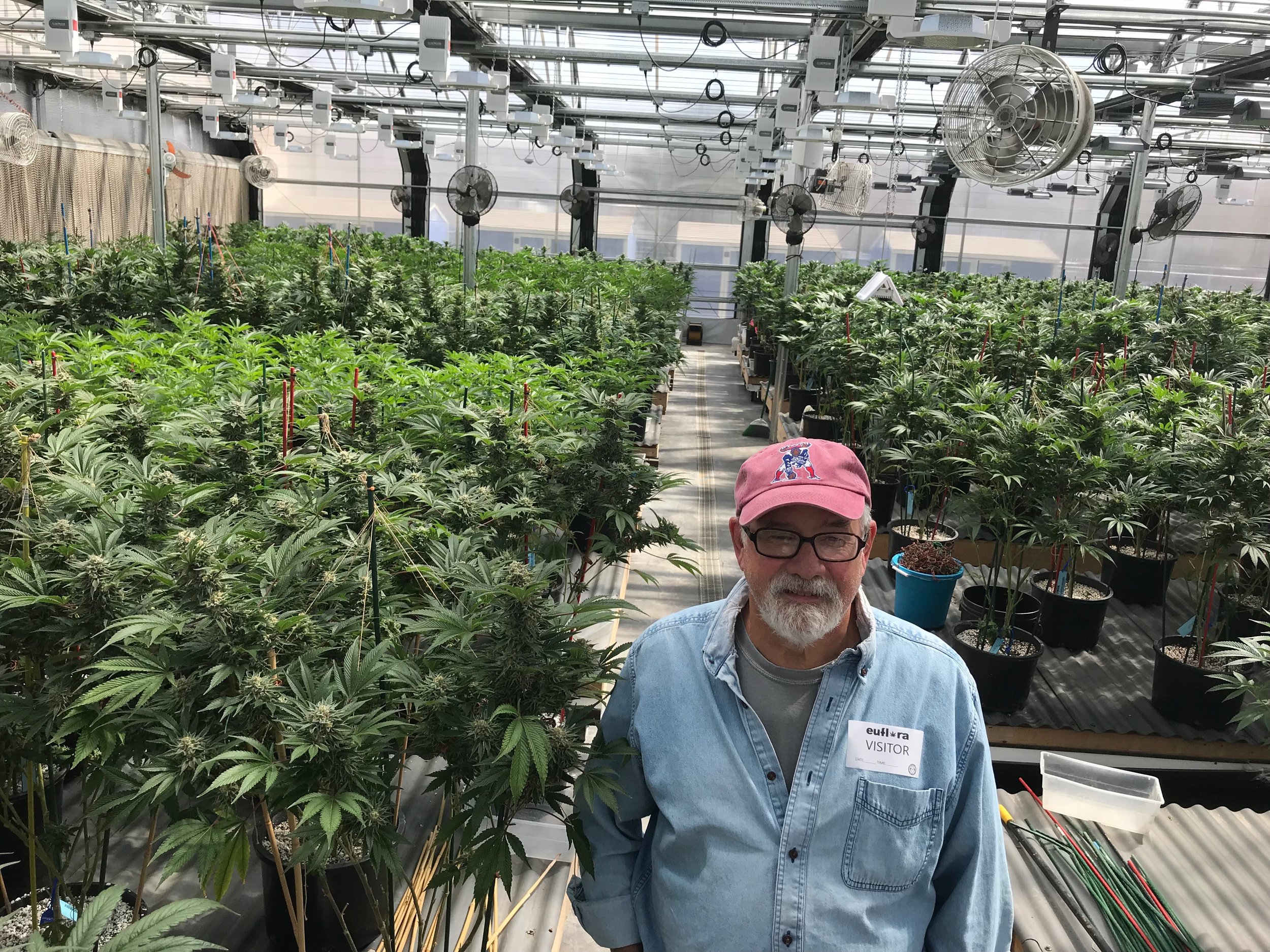All aboard the cannabis train
In Colorado, few complaints about legal marijuana
By Rick Holmes
April 27, 2018
Colorado Springs, Col. – Five years after Colorado legalized recreational marijuana, it sometimes seems like there’s a pot shop on every corner, even here in the center of Colorado conservatism.
On one corner is Maggie’s Farm, advertising “Premium Sun-Grown MJ.” A block or two away is Emerald Fields, and beyond that, the Herb Shoppe. On one corner sits “Gas + Grass,” where you can fill your tank and fill your bowl at the same place. Just don’t fire it up until you get home.
It’s novel to visitors from out of state, but not overwhelming. The dispensaries tend to be small and unobtrusive. Security is strict – you have to show your ID three times before they let you out the door – and state regulators have shown they’ll yank the license of any business that violates its many rules. The only problem I saw coming from the pot shops was inappropriate giggling.
For years, politicians in other states have urged voters to hold off on marijuana reform until we see how things work out in Colorado. But Colorado hasn’t provided much ammunition for the opponents of legalized cannabis.
The greatest fears of the opposition have failed to materialize. Rather than going up, teen drug use is as low as it’s been in a decade. Crime is down as well. Opioid deaths actually decreased in Colorado by 6 percent in the two years following legalization, while deaths were increasing nationwide.
There are arguments over trends in traffic deaths and hospital admissions, but almost nobody is arguing to make marijuana criminal again. It’s regulated, and it’s working.
The surprise isn’t the harm legalization has done to Coloradans, but the good it’s done for the state’s economy. Business is booming, especially in the Denver area. U.S. News ranks Colorado the best economy in the nation. Unemployment is at three percent. Denver has the problems that come with prosperity – rising housing costs, rush hour traffic and the like – but it beats the alternative.
Legalization can’t take credit for all Colorado’s economic dynamism, but it can claim its share. Legal weed puts $2 billion a year into the state’s economy. It’s put more than $500 million into city and state coffers. So many long-abandoned brick warehouses have been turned into cannabis grow-sites that prices for industrial property are soaring. Marijuana has helped made Denver a magnet for young entrepreneurs of varied interests.
Colorado’s economy has also gotten a boost from cannabis tourism. Travel agents arrange excursions to pot-friendly resorts. I took a tour of marijuana greenhouses and dispensaries, in a pot-friendly party bus, guided by experts in cultivation and product development.
The word on weed from the front line is that prices are down, quality is up, and innovations are hatched every day in products and delivery devices. There’s a lot of competition, a lot of supply, and consumers are benefiting from it.
Fruity strains seem to be hot right now, one grower told me, but preferences seem to vary by neighborhood. Another insider said he expects vaping pre-packaged cartridges of cannabis concentrate will become the norm, but “sometimes, at the end of the day you’ll still want to kick back and smoke a joint.”
This ancient medicine is seeing a new golden age.
And politicians, at last, are starting to notice. With the prominent exception of Attorney General Jeff Sessions, officials of both parties are figuring out that pot is more popular and less dangerous than they thought.
Colorado Gov. John Hickenlooper didn’t support legalization, but he gets a lot of credit for making it work. There’s talk Hickenlooper, a Democrat, may run for president in 2020, with marijuana policy setting him apart from the pack. Sen. Cory Gardner, a Republican, didn’t support it either. But he’s become a champion for his state’s new industry, wringing a promise from President Trump to protect states with legal marijuana from interference from Sessions’ Justice Department.
Trump has yet to put that pledge in writing, and most Republicans are still hesitant to jump on the cannabis train. But Democrats are at getting onboard, pushing in state capitals for legalization and in Congress for an end to federal prohibition.
On April 20, Senate Minority Leader Chuck Schumer announced he’ll file a bill removing cannabis from federal jurisdiction. By doing it on 4/20, the day pot-smokers have long used to protest anti-marijuana laws, the top Democrat in Congress wasn’t just stating a policy preference, he was choosing sides.
Colorado jumped on the train early, but other states are joining the party, and feeling the same economic buzz. Across the country, sales of cannabis are expected to hit $11.7 billion this year, USA Today reports. At least 121,000 people hold jobs growing, trimming and selling legal weed. That’s more than twice as many jobs as there are in coal-mining, for comparison, and there’s more jobs where those came from.
Rick Holmes can be reached at rick@rickholmes.net. You can follow his journey at www.rickholmes.net. Like him on Facebook at Holmes & Co, on follow him on Twitter @HolmesAndCo.




